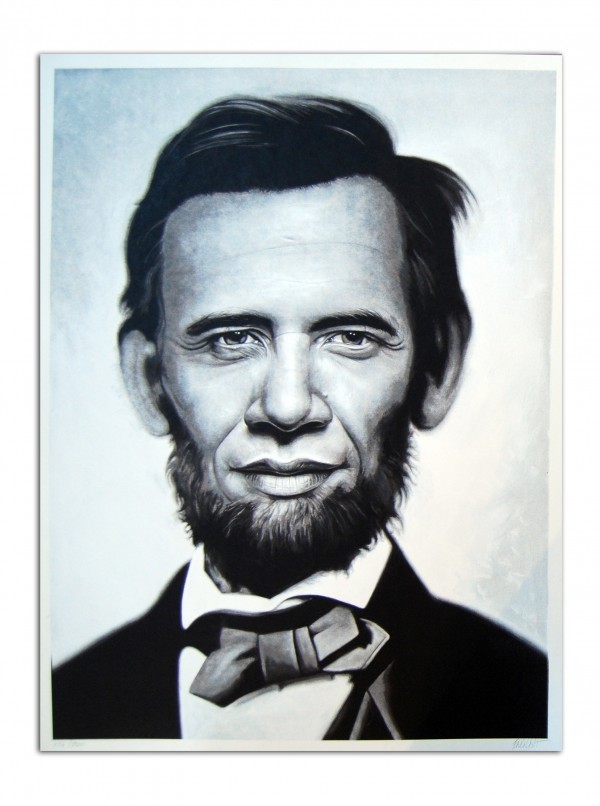Artwork by RON ENGLISH
WASHINGTON POST: President Obama’s extraordinary family story gained a new layer this week as a team of genealogists found evidence that he is most likely a descendant of one of the first documented African slaves in this country. The link to slavery, which scholars of genealogy and race in the United States called remarkable, was found to have existed approximately 400 years back in the lineage of Obama’s mother, Stanley Ann Dunham. It was discovered by a team of four genealogists from Ancestry.com whose findings from two years of work were released in a report Monday. Using property and tax records, the team uncovered “a lot of context and circumstantial evidence” that points to an enslaved black man named John Punch being Obama’s ancestor, said Joseph Shumway, one of the genealogists who worked on the report. Because his father immigrated from Kenya and his mother, who was born in Kansas, was white, Obama was thought to have no direct ancestral links to slaves. “His tree is one of the most dynamic that we’ve seen as far as diversity,” said Shumway, whose company also helped uncover that the president has Irish ancestry and is a distant cousin of Warren Buffett. “There are so many ways that we’ve been able to find interesting stories and connection points.” The link between Obama and Punch was first reported by the New York Times from an early copy of Ancestry’s report. Punch is a significant historical figure who has long been a subject of research. In 1640, he and two European American indentured servants were arrested for running away from their masters in Colonial Virginia. The two white men received four additional years of servitude, but the black man, Punch, was to “serve his said master .?.?. for the time of his natural life,” said Peter H. Wood, a professor emeritus of history at Duke University who has written about Africans in Colonial America. Punch is thought of as the first black slave in Virginia. His was the first documented case of slavery for life in the colonies, decades before institutional slavery was enacted in the state. MORE

